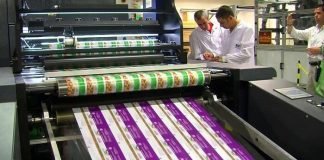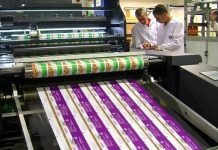In fast moving shipping world, packaging options are very important for getting products moved and kept properly. Among different choices, bulk packaging bags and bulk sacks (also called flexible bulk containers, or FIBCs) are getting more popular in many areas. These big, tough bags are safe and good for handling and moving bulk stuff. This piece looks at the uses, gains, and new ideas about bulk packaging bags and bulk Sacks.
What are bulk sacks or bulk packaging bags?
Bulk sacks or bulk packaging bags are large bags made of woven polypropylene which is strong and bendy. Made to hold lots of bulk items, these bags can carry from 500 to 5000 kilograms. Whether it’s powders or grains or chemicals, bulk packaging bags offer a smart way to move bulky goods well and safely.
Usually, bulk sacks are built to take rough handling, wetness, and UV rays, making them good for industries that need tough and dependable packing. Their strength is why these bags are a top pick for moving bulk material.
Uses in different fields
Bulk packaging bags work in many fields. Here are some examples:
- Farming: In farming, bulk sacks often hold grains, fertilizers, and seeds. These bags help store large amounts which cuts down on needing smaller packs that aren’t as efficient.
- Chemicals: In chemical work, bulk packaging bags pack powders or granules even hazardous stuff. Their strength keeps transport safe while they stay easy to handle.
- Building: For building workers, bulk sacks move things like sand or gravel or cement. A big size plus tough design makes them fit for heavy materials in construction jobs.
- Food industry: The food sector uses bulk packaging bags too. These bags carry bulk ingredients like flour or sugar. Food-grade bulk sacks follow safety rules so items inside stay secure while shipping.
- Medicine: The medicine field uses bulk sacks for moving raw stuff or chemicals. High standards needed mean these bags meet strict rules about safety.
Benefits & Gains:
The rise of bulk packaging bags and bulk sacks comes from their many benefits:
- Money-saving: One main gain is cutting packaging costs. Bigger sacks mean needing fewer small spots therefore saving on shipping, labour, and materials.
- Space efficient: When not full, bulk packaging bags fold flat, easy to store meaning less need for big warehouse space. This saving space feature helps businesses organize storage better.
- Safety features: Designed with safety considered, bulk sacks have strong seams, strong loops, and discharge spouts that help avoid accidents and make moving bulk things safer.
- Goes green: Made mostly from polypropylene, Bulk packaging bags recycle easily aiding sustainable packaging choices. With awareness growing more firms pick recyclable bags reducing trash.
Innovations:
As demand as more efficient and green packing options become sought after, the designs of bulk packaging bags and bulk sacks keep changing. Some key progressions include:
- Stronger materials: Manufacturers have made better polypropylene fabrics over time, letting bulk sacks hold heavier items. These tougher materials help bulk bags endure rough use and bad weather, making them last longer and be more trustworthy.
- Environmentally friendly materials: With rising concerns for the planet, many companies are choosing eco-friendly packing solutions. Some suppliers now provide bulk sacks made from recycled polypropylene or materials that break down, which helps lessen their impact on nature.
- Tailoring options: Bulk packaging bags can be tailored to meet certain needs. Features include UV protection to stop sun damage, food-safe certifications for industries needing hygiene, and even custom designs with specific colours or logos.
Things to keep in mind and challenges
Despite the many advantages provided by bulk sacks, there are also important factors and hurdles that businesses should remember when picking out the right packing:
- Size and toughness: It’s crucial to pick the correct size and toughness of bulk bags depending on what is being moved. Putting too much in a bag or using one that isn’t strong enough can cause harm or spills.
- Laws and regulations: In sectors like food or medicine, following strict rules is very important. Picking bulk sacks with needed certifications helps ensure they meet safety standards.
- Handling and keeping: Though bulk packaging bags are meant to be easy to store and move around with, heavy filled bags might need special tools like forklifts or cranes. Proper storage is also key to avoid contamination or damage inside.
- Risks of contamination: Based on what’s stored inside, there can be risks of contamination. Over time, bulk sacks may soak up chemicals or particles from their contents that could compromise future shipments’ quality.
Final thoughts
Bulk packaging bags and sacks are changing how packaging works by offering flexible, cost-effective ways to transport large material amounts. These bags find use across many fields – from farming to medicine – delivering benefits such as savings, space efficiency, and safety. With ongoing improvements in material strength, sustainability efforts, and customization features, these bags will likely remain vital in modern logistics for years onward. Nonetheless, businesses should think about size capacity, regulatory rules, alongside handling guidelines to enjoy all the advantages these adaptable packing solutions provide.

























